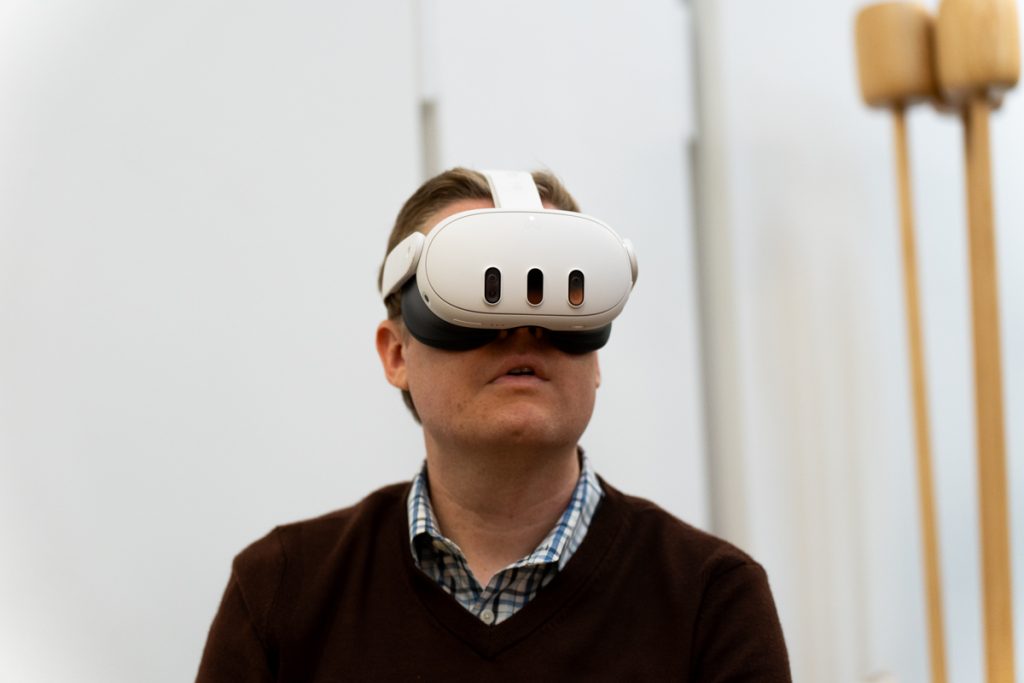Meta’s Big Bet on Generative AI for Metaverse Games

Meta is diving headfirst into the world of generative AI for metaverse games. This tech giant is looking to revolutionize gaming by bringing advanced AI into VR, AR, and mixed reality spaces. According to recent job listings, Meta aims to create gameplay experiences that change every time you play and follow unique, non-deterministic paths.
Meanwhile, Meta is exploring partnerships with third-party creators to develop AI-powered tools for better workflow efficiency and faster time-to-market. Their main focus remains on the Horizon platform, yet the potential applications extend far beyond, even to other platforms like smartphones and PCs. The possibilities are endless.
Generative AI in Gaming
Meta is diving into the world of generative AI for metaverse games, with a focus on VR, AR, and mixed reality. According to recent job listings, the company aims to create new gameplay experiences driven by this advanced technology. The goal? To make games that change every time you play them and follow unique, non-deterministic paths.
Meta’s vision includes developing in-house generative AI tools and partnering with third-party creators. These AI-powered tools aim to enhance workflow efficiency and reduce time-to-market for metaverse games. While the primary focus is on Horizon, Meta’s array of metaverse games and apps, the tech could also be deployed on non-Meta platforms like smartphones and PCs.
The Horizon Platform and Beyond
Meta’s current efforts seem to target its Horizon platform, which has struggled to gain user traction despite selling millions of Meta Quest headsets. By integrating generative AI, Meta hopes to offer a fresh, engaging experience that can attract more users to Horizon. The expectation is that these AI tools will open up new possibilities for gameplay and content creation.
Interestingly, Meta is also allowing third-party headset manufacturers to license features like hand and body tracking from Meta Quest. This move indicates a broader strategy to make its technology more accessible, even if users aren’t on a Meta-owned platform. This could be seen as a pivot to reinvigorate interest and investment in their metaverse projects.
Past AI Endeavors
Meta’s interest in generative AI isn’t new. In 2022, CEO Mark Zuckerberg showcased a prototype known as Builder Bot, which allowed users to create virtual environments through simple voice prompts like “Let’s go to the beach.” This early foray set the stage for their current ambitions in integrating AI into gaming and other metaverse experiences.
Further, Meta’s CTO, Andrew Bosworth, highlighted how generative AI could democratize content creation. He referred to these tools as a “force multiplier for developers,” enabling small teams to create at a level previously only possible for larger studios. This statement reflects Meta’s commitment to leveling the playing field in content creation.
Meta’s significant investment in AI has also been noted in various reports. Earlier this year, the company announced plans to spend billions on generative AI, further emphasizing its belief in the potential of this technology. Despite these investments, Zuckerberg has cautioned that it will take years before the company sees substantial financial returns from these efforts.
Industry Impact
Generative AI is already making waves in game development, with companies like Disney-backed Inworld and Artificial Agency using the technology to create dynamic dialogues and narratives. These advancements indicate a broader industry trend towards incorporating AI to enhance gaming experiences.
Platforms now exist that offer AI-generated game art assets and character voices. However, this has sparked concerns among some game developers about job security and the potential for AI to replace human creativity. Despite these concerns, the push for AI in gaming continues to grow, driven by its ability to streamline production and introduce innovative gameplay elements.
Financial and Strategic Implications
Meta’s Reality Labs, responsible for metaverse projects including the Meta Quest headset, has faced significant challenges. Despite selling millions of units, Horizon, the mixed reality platform, has not met user expectations. The company’s decision to pivot its strategy by licensing software features to third-party manufacturers is a tactical move to broaden its user base and generate additional revenue streams.
Meta’s growing investments in generative AI-based game projects are partly attributed to Mark Zuckerberg’s renewed interest in enhancing the Quest headset’s gaming capabilities. This renewed focus may help Meta to recover from its substantial operating losses and position itself more favorably in the competitive gaming market.
Future Prospects
The potential of generative AI in the metaverse is enormous. It offers the possibility of creating entirely new types of game experiences that were previously unimaginable. From dynamic worlds that evolve with each player’s actions to personalized narratives, the opportunities are vast and exciting.
However, the journey is not without its challenges. Financial viability remains a significant hurdle, as significant investments are required without the guarantee of immediate returns. Moreover, the acceptance of AI by the gaming community and developers will be crucial for its success.
Meta’s transparency about the time needed to monetize generative AI indicates a realistic approach to integrating this technology. While the road may be long, the potential rewards could reshape the landscape of gaming and metaverse experiences dramatically.
Conclusion
Meta’s ambitious plans to integrate generative AI into its metaverse games mark a significant step towards advancing virtual and augmented reality experiences. These efforts, while still in their early stages, hold the promise of revolutionizing the way we interact with digital worlds. As the company continues to invest in this technology, the impact on both the gaming industry and content creation at large will be worth watching.
With a focus on enhancing workflows, reducing time-to-market, and democratizing game development, generative AI could be the key to unlocking a new era of immersive, ever-evolving game experiences. Only time will tell how these initiatives will unfold, but one thing is clear: Meta is betting big on the future of AI in the metaverse.
Meta’s ambitious plans to integrate generative AI into its metaverse games mark a significant step towards advancing virtual and augmented reality experiences. These efforts, while still in their early stages, hold the promise of revolutionizing the way we interact with digital worlds. As the company continues to invest in this technology, the impact on both the gaming industry and content creation at large will be worth watching.
With a focus on enhancing workflows, reducing time-to-market, and democratizing game development, generative AI could be the key to unlocking a new era of immersive, ever-evolving game experiences. Only time will tell how these initiatives will unfold, but one thing is clear: Meta is betting big on the future of AI in the metaverse.





